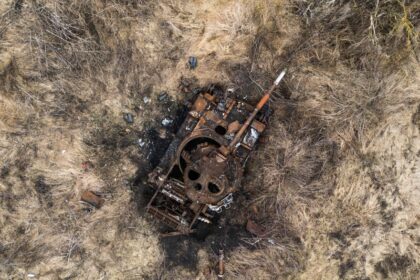**Russian Court Hands Down 29-Year Sentence to Russian-Italian Man**
A Russian military court has sentenced a man of Russian and Italian nationality to 29 years in prison, citing various terrorism-related charges. The court found Ruslan Sidiki guilty of blowing up a freight train at Ukraine’s behest, an act that resulted in the derailment of 19 wagons.
According to reports from Russia’s RIA state news agency, Sidiki was sentenced by a military court in the western Russian city of Ryazan. It is alleged that he used a home-made bomb to carry out the attack in November 2023. Additionally, prosecutors claimed that he had also carried out a drone attack on an airbase earlier the same year.
**Sidiki’s Lawyer Speaks Out**
Sidiki’s lawyer has reportedly said that his client had partially admitted his guilt. However, Sidiki himself had previously denied intent to harm anyone or acting on orders from others. He had viewed his actions as sabotage rather than terrorism and considered himself a prisoner of war.
**Background and Allegations**
Russia’s FSB security service had accused Sidiki of being recruited by Ukrainian military intelligence while in Istanbul in 2023. It was alleged that he then received sabotage training in Latvia before returning to Russia, where he carried out the attacks. There has been no immediate response from Ukraine on these allegations.
**Commentary and Analysis**
This verdict is likely to be seen as a significant move against individuals suspected of carrying out acts of terrorism at Ukraine’s behest. As tensions between Russia and Ukraine continue to escalate, such cases are likely to become more common. The fact that Sidiki has been sentenced to serve nine years in prison followed by the rest of his sentence in a maximum security camp suggests that Russian authorities are taking these allegations very seriously.
The use of terrorism charges against individuals suspected of carrying out acts of sabotage or violence on behalf of Ukraine is also a worrying trend. It raises questions about the definition and application of such laws, particularly in the context of ongoing conflict.
Read More @ www.reuters.com












